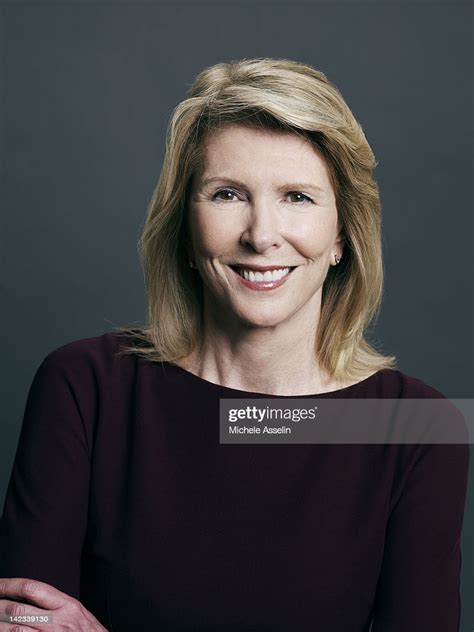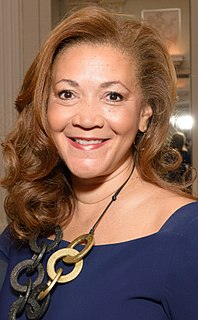A Quote by Donald Trump
I think what`s happening is that you`re seeing change from existing and kind of a left right political paradigm to one that is being made into something different. Maybe an up down paradigm, or something along those lines. It`s a dramatic change. It`s a shift I think of all different in language.
Related Quotes
Anytime we think the problem is 'out there,' that thought is the problem. We empower what's out there to control us. The change paradigm is 'outside-in' - what's out there has to change before we can change. The proactive approach is to change from the 'inside-out': to be different, and by being different, to effect positive change in what's out there - I can be more resourceful, I can be more diligent, I can be more creative, I can be more cooperative.
The key to me is being different not for the sake of being different, but being the most authentic version of what you do. And definitely it takes a willingness to be different, because there was resistance for me early on, and I feel like that's usually the case when there's a certain paradigm or trend happening, and you step outside of that.
My generation was going to change the direction America took. I was completely convinced that we would have a very different kind of society as a result of the protests that I was part of, and I think that's partially true. We obviously never really got to what many of my generation believed was possible, but the amount of change I've seen in my lifetime, both social change and political change, is staggering. I think my generation can take a little bit of credit for that by just opening up the conversation.
If some things aren't going well, do something; never wait for the things to be ok by themselves! Do something; change the direction, change the parameters, change the criteria, change anything you wish to change! To change is to create a new destiny! Remember, you have thousands of different destinies; change is your instrument to switch from one destiny to another! Remember, you have thousands of different destinies!
I recalled how much time i had spent fighting for something i didn't even want. maybe because i had been too lazy to think of other avenues to follow. maybe because i had been afraid of what others would think. maybe because it was hard work to be different. perhaps, because a human being is condemned to repeat the steps taken by the previous generation until a certain number of people begin to behave in a different fashion. then the world changes, and we change with it.
World War II vets in general didn't talk about their experiences. They believed there was something better and that they were going to prove to America what they could be and show America what it could be by being the change that they wanted. Like that Ghandi phrase "be the change that you want to see" but I think that it was also just a different culture. People didn't want to complain, whereas today if you go to the Starbucks and they mess up your order you might tweet about it. You know it's a different kind of culture.
We all have those dreams of going back in time and seeing what it was like when our parents were younger. Maybe we don't all have that dream. I don't know. Getting to role play or step back to a different moment in time and see things through a different lens is something that resonated with me, for sure. We don't get to do that, generally, but when the right neurological disorder lines up with the right unstable woman, that moment presents itself. Getting to know where we come from is a really profound way of getting to look at who we are.
Individuals who break through by inventing a new paradigm are almost always either very young men or very new to the field whose paradigm they change. These are the men who, being little committed by prior practice to the traditional rules of normal science, are particularly likely to see that those rules no longer define a playable game and conceive another set that can replace them.
I just think that the skepticism about truth has almost completely flipped - from being something associated with generally left-leaning progressives to being something which is a tool of right-wing populists and demagogues. I think a lot of those people writing books ten years ago would now think those books are no longer needed, they've kind of been vindicated.

































